
Carbon Energy
Scope & Guideline
Advancing sustainable solutions for a greener tomorrow.
Introduction
Aims and Scopes
- Energy Storage Solutions:
Research on carbon-based materials for various energy storage systems, including lithium-ion, sodium-ion, and potassium-ion batteries, with a focus on improving capacity, cycle life, and safety. - Electrocatalysis and Energy Conversion:
Investigates novel electrocatalysts derived from carbon materials for efficient energy conversion processes, including CO2 reduction, hydrogen evolution, and fuel cells. - Sustainable Carbon Materials:
Focus on the development and utilization of sustainable carbon materials, including those derived from biomass and waste, for applications in energy storage and environmental remediation. - Advanced Characterization Techniques:
Emphasizes the use of advanced characterization methods to understand the structure-performance relationships of carbon materials and their composites. - Nanostructured Carbon Architectures:
Explores innovative designs of carbon nanostructures for enhanced electrochemical performance in energy-related applications.
Trending and Emerging
- Sustainable and Green Technologies:
An increasing emphasis on sustainable and environmentally friendly carbon materials, with research focusing on utilizing waste materials and renewable resources for energy applications. - Advanced Electrocatalysts:
A surge in studies related to the design and optimization of advanced electrocatalysts for CO2 reduction and hydrogen evolution, aiming for higher efficiencies and lower costs. - Solid-State Batteries:
Growing interest in solid-state batteries, particularly those utilizing carbon-based electrolytes and interfaces, as a means to enhance safety and energy density. - Flexible and Wearable Energy Devices:
Emerging research on flexible and wearable energy storage devices utilizing carbon materials, catering to the increasing demand for portable and adaptable energy solutions. - Carbon Nanostructures in Energy Applications:
A trend towards the exploration of novel carbon nanostructures, such as MXenes and carbon nanotubes, for enhancing performance in energy storage and conversion technologies.
Declining or Waning
- Traditional Carbon Materials:
Research on conventional carbon materials, such as graphite and activated carbon, for energy applications has decreased as newer materials and composites gain prominence. - Single-Use Carbon Products:
The focus on single-use carbon products, such as disposable batteries or non-recyclable carbon materials, has waned in favor of sustainable and recyclable solutions. - Basic Theoretical Studies:
There is a declining interest in purely theoretical studies of carbon materials without experimental validation, as the field shifts towards practical applications and experimental corroboration. - Carbon-Based Photovoltaics:
Research specifically focused on traditional carbon-based photovoltaic materials is diminishing as interest shifts towards hybrid and perovskite solar cell technologies. - Low-Efficiency Carbon Catalysts:
Interest in low-efficiency carbon catalysts for electrochemical reactions is decreasing, as more efficient alternatives are being developed and explored.
Similar Journals

NEW CARBON MATERIALS
Exploring the Future of Carbon InnovationNEW CARBON MATERIALS, published by Elsevier, is a leading academic journal that focuses on the innovative and multidisciplinary field of carbon materials research. With an ISSN of 2097-1605 and an E-ISSN of 1872-5805, this journal has established itself as a prominent platform for disseminating cutting-edge studies and applications in the realm of carbon nanomaterials, composites, and their industrial applications. Recognized for its high quality, NEW CARBON MATERIALS holds a Q1 ranking in the Materials Science category, reflecting its significant impact within the scientific community. The journal has continuously fostered knowledge exchange since its inception in 2004 and is set to further advance research until 2024. With a Scopus rank of #89 out of 463 journals in the General Materials Science category, this publication is essential for researchers, professionals, and students seeking to stay informed about the latest developments in carbon materials. While it is not an open-access journal, it offers various access options to ensure that the latest findings are available to a broad audience. By bridging the gap between theory and practical application, NEW CARBON MATERIALS is at the forefront of addressing critical challenges and paving the way for future advancements in materials science.
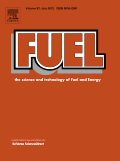
Fuel
Unleashing Potential in Chemical Engineering and EnergyFuel is a premier international journal published by Elsevier Science Ltd, showcasing critical advancements and insights in the fields of chemical engineering, energy engineering, power technology, and organic chemistry. With a significant history dating back to 1922 and continuous publication from 1970 to 2025, Fuel holds an impressive position in the academic community, reflected in its top-tier rankings—Q1 in multiple categories including Fuel Technology and Chemical Engineering for the year 2023. This journal is dedicated to exploring innovative research and application of fuel technologies, driving forward the dialogue on sustainable energy solutions. Researchers and professionals alike will find Fuel to be an essential resource, providing access to high-impact articles that contribute to advancements in methodologies and applications, while navigating the complexities of global energy challenges.

Journal of Power Sources Advances
Exploring Breakthroughs in Electrochemistry and BeyondJournal of Power Sources Advances, published by ELSEVIER, stands at the forefront of innovative research within the fields of Electrochemistry, Energy Engineering and Power Technology, and Materials Chemistry. Having established itself as an Open Access journal since 2020, it aims to disseminate knowledge rapidly and widely among researchers, professionals, and students interested in the latest advancements in power sources technology. With an impressive impact factor and recognition as a Q1 journal in 2023 across multiple categories, it addresses key challenges and innovations in energy generation, storage, and materials development. The journal's commitment to high-quality, peer-reviewed content fosters a vibrant community for discussing breakthroughs that hold the potential to transform energy systems globally. The journal operates out of the Netherlands, enhancing its global outreach, while its strong Scopus rankings highlight its influential role in driving research within its scope. Journal of Power Sources Advances is the pivotal resource for those dedicated to shaping the future of energy sustainability and technology.

Energy Materials
Unlocking the Potential of Materials for Energy Innovation.Energy Materials is a pioneering journal published by OAE PUBLISHING INC, dedicated to the dynamic field of energy materials science and engineering. With a focus on advancing knowledge related to materials used in various energy applications such as batteries, fuel cells, and solar cells, this open-access journal aims to disseminate cutting-edge research and innovative methodologies to a global audience. By offering a platform for original research, reviews, and case studies, Energy Materials plays a crucial role in bridging the gap between materials science and energy technology, facilitating the development of sustainable energy solutions. Researchers, professionals, and students alike will find invaluable insights in its pages, fostering advancements in this essential sector. To explore the latest developments in energy materials, visit Energy Materials at OAE PUBLISHING INC.
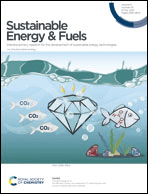
Sustainable Energy & Fuels
Shaping Tomorrow's Energy Landscape TodaySustainable Energy & Fuels is a leading journal published by the Royal Society of Chemistry, dedicated to advancing knowledge in the fields of energy engineering, fuel technology, and renewable energy solutions. With its ISSN of 2398-4902 and notable Q1 status in both Energy Engineering and Power Technology as well as Fuel Technology, this journal ranks impressively in the Scopus database, ensuring a strong platform for disseminating impactful research. The journal spans a comprehensive scope aimed at addressing the global challenges of sustainable energy, including innovative methodologies and technologies that promote environmental sustainability. Although it operates under a traditional access model, the journal is committed to providing high-quality content that engages researchers, professionals, and students alike. With significant contributions expected through 2024, Sustainable Energy & Fuels stands at the forefront of facilitating scholarly communication, inspiring advancements in energy technologies that align with sustainability goals.

Energy Material Advances
Leading the Charge in Energy Material DiscoveriesEnergy Material Advances, published by the American Association for the Advancement of Science, stands at the forefront of energy research, showcasing groundbreaking studies in the realm of renewable energy, fuel technology, and materials science. With the journal's commitment to open access since 2020, it aims to democratize knowledge and foster innovation across a global community of researchers, professionals, and students. The journal boasts an impressive impact factor, placing it firmly within the Q1 category across multiple disciplines including Energy (miscellaneous), Fuel Technology, and Renewable Energy, Sustainability and the Environment, highlighting its significance in advancing scholarly discussions. In the latest Scopus rankings, Energy Material Advances ranks among the top 10% of journals in its field, affirming its role as a pivotal resource for current and emerging trends in energy materials. The journal is dedicated to facilitating collaborative efforts and inspiring novel approaches to the challenges posed by energy sustainability and technological advancement.
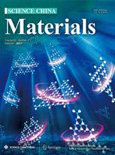
Science China-Materials
Advancing the Frontiers of Materials Science.Science China-Materials is an esteemed peer-reviewed journal dedicated to advancing the field of materials science, published by SCIENCE PRESS. With a strong focus on innovative research and applications, this journal provides an essential platform for disseminating groundbreaking findings in materials development, characterization, and engineering. Since its inception, Science China-Materials has achieved an impressive Q1 ranking in the Materials Science (miscellaneous) category, reflecting its commitment to quality and the impact of its publications, as indicated by its 86th percentile ranking in Scopus. The journal is set to converge its contributions from 2016 to 2024, making it a vital resource for researchers and professionals interested in the latest advancements and trends in materials science. As an open access publication, it ensures that knowledge is freely available to a global audience, promoting collaboration and innovation across disciplines. The journal is headquartered in Beijing, China, and continues to attract high-quality submissions from leading experts in the field.
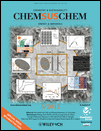
ChemSusChem
Transforming Challenges into Sustainable InnovationsChemSusChem is a premier interdisciplinary journal, published by WILEY-V C H VERLAG GMBH, that focuses on the critical fields of Chemical Engineering, Energy, Environmental Chemistry, and Materials Science. Since its inception in 2008, the journal has consistently maintained a Q1 ranking across multiple categories, highlighting its role as a vital resource for researchers and professionals dedicated to advancing sustainable chemical processes and technologies. With an impressive impact factor, it ranks 12th in General Chemical Engineering and is highly regarded within its scopes, indicating the journal's commitment to publishing high-quality, innovative research that addresses global challenges in energy and environmental sustainability. Though it operates on a subscription model, its contributions are essential for those in academia and industry seeking cutting-edge developments in sustainable chemistry. As it approaches its convergence span through 2024, ChemSusChem continues to shape the future of sustainable chemistry, making it a must-read for students, researchers, and practitioners alike.
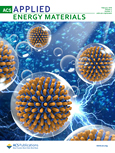
ACS Applied Energy Materials
Unleashing Potential in Energy TechnologiesACS Applied Energy Materials, published by the American Chemical Society, is a premier journal dedicated to the cutting-edge fields of energy materials, chemical engineering, and electrochemistry. With an impressive impact factor and consistently ranked in the Q1 category across multiple disciplines—including Chemical Engineering, Electrical and Electronic Engineering, and Materials Chemistry—this journal serves as a pivotal platform for researchers and professionals focused on innovative solutions for energy systems and materials science. Since its inception in 2018, ACS Applied Energy Materials has been committed to disseminating high-quality research that addresses pressing energy challenges, promoting sustainability and efficiency in various applications. Its competitive Scopus rankings reflect the journal's influence and relevance within the academic community, making it an essential resource for anyone looking to stay at the forefront of energy materials research.

Electrochemical Energy Reviews
Exploring the Frontiers of Electrochemical ResearchElectrochemical Energy Reviews, published by SpringerNature, serves as an essential platform for the dissemination of cutting-edge research in the fields of electrochemistry, material science, and energy engineering. With an impressive impact factor and ranked in the Q1 category across multiple disciplines including Chemical Engineering and Energy Technology, this journal highlights its commitment to advancing knowledge and innovation within the energy sector. Operating since 2018, the journal not only provides a valuable resource for researchers and professionals but also invites contributions from students and emerging scholars interested in the pivotal role of electrochemical processes in sustainable energy solutions. Published in Germany and widely accessible to the global research community, Electrochemical Energy Reviews is an indispensable reference for those keen on exploring the future of energy technologies.